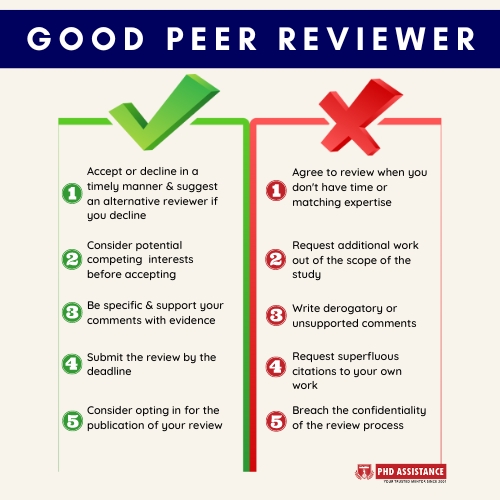Who is a Good Peer Reviewer?
A peer reviewer is a person who reviews and evaluates the work of other professionals in the same field or area of expertise. Peer review is a process by which experts in a particular field evaluate the quality and validity of research or scholarly work submitted for publication or funding. Peer reviewers are typically selected based on their expertise and experience in the relevant field and are expected to provide feedback and criticism to help improve the work under review. Peer review is an essential part of the academic and scientific process, as it helps to ensure the credibility and accuracy of research findings and publications.
Introduction
A good peer reviewer is typically someone who has expertise in the subject matter being manuscript reviewed and is able to provide thoughtful and constructive feedback. They should also be able to evaluate the research methods and data analysis techniques used in the study and provide suggestions for improvement. A good peer reviewer should be unbiased and provide fair and objective feedback, even if they disagree with the study’s conclusions. Additionally, they should be able to communicate their feedback clearly and respectfully.
A proficient peer reviewer can rapidly identify the merits and shortcomings of a research paper/proposal. A knowledgeable peer reviewer should be able to notice the broad contributions (or lack thereof) in a contribution rather than getting caught up in the specifics. They are also strong communicators who understand how to provide constructive and efficient criticism. Finally, a peer reviewer must be punctual and recognize when time restrictions prevent them from accepting a review assignment.

To Be A Good Peer Reviewer
- Even if the content is not yet ready for publication, good reviewers take the time to offer a helpful critique of the work. In a world with excess contributors, there is a significant emphasis on innovation in peer review, which is totally understandable. However, make sure that your feedback contributes to improving the work. If you accept the review, honour the researcher and the research by adding value to what you are provided.
- It is not your responsibility to copyedit but to assess the research for originality, appropriateness, and relevance. Don’t be concerned with formatting, and read past linguistic obstacles. If you observe that these faults are hindering the science’s understanding, notify the author and suggest that the work be resubmitted after the concerns are resolved.
- Remember that the larger community requires more suitable material for all scholars. The more research released, the more content creators read and share it. This broadens the scope and reach of the intellectual community as a whole (Dhillon 2021).
PhD Assistance
PhD Assistance is committed to providing outstanding paper peer review service in line with your criteria. We evaluate the items from your perspective and explain how you’re them while staying kind and genuine. Our professionals’ access to all necessary sources and their understanding of the requirements for journal papers makes it beneficial to seek their help.
References
Dhillon, Paraminder. “How to be a good peer reviewer of scientific manuscripts.” The FEBS journal 288.9 (2021): 2750-2756.
 Previous Post
Previous Post Next Post
Next Post
